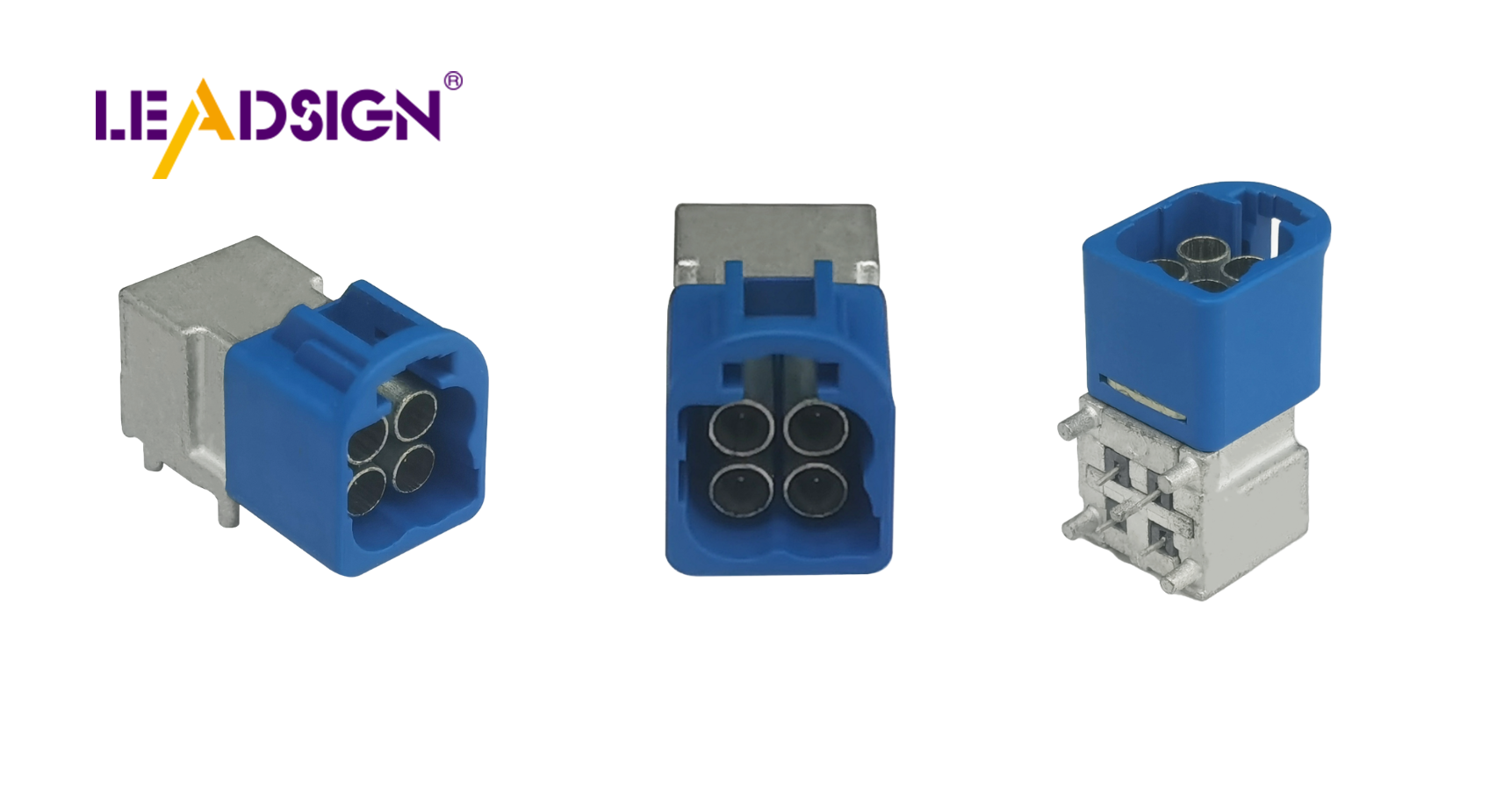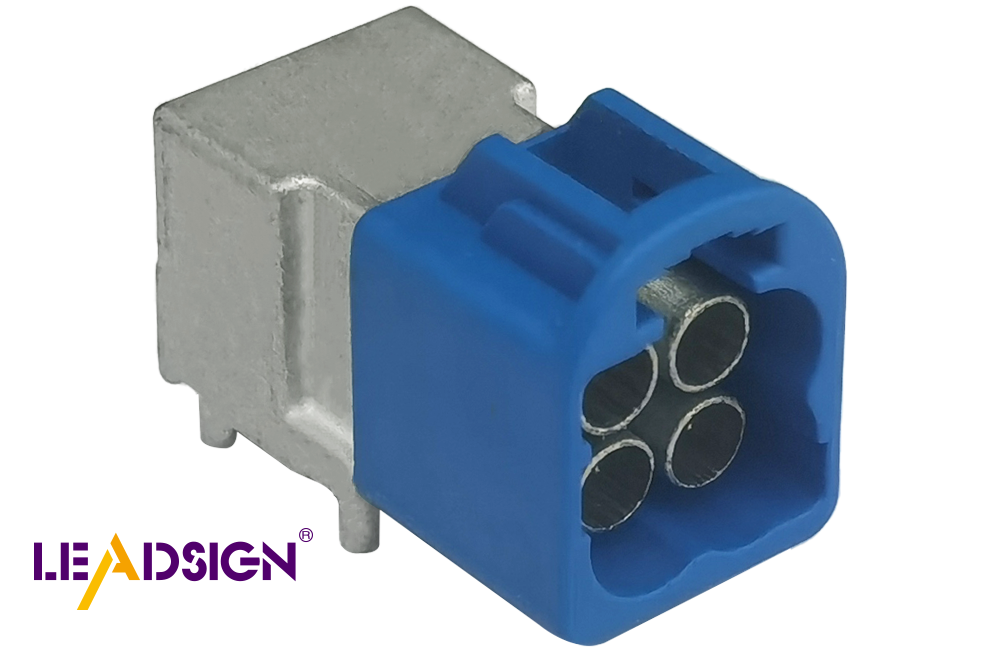Types of Wire Connectors Automotive: An Overview

Car wire connectors are very important automotive electrical connectors types. They help send electrical signals in cars, ensuring that the various components function properly. These connectors maintain safe and strong connections, which is crucial for safety and reliability. They prevent electrical issues, helping to avoid accidents. Understanding the different types of connectors enhances vehicle safety and performance.
Importance and Functionality of Wire Connectors in Cars
Keeping Electrical Parts Connected
Wire connectors in cars are very important. They link different circuits together. This helps car parts talk to each other. When signals move smoothly, all car systems work well. Without these connectors, electricity would stop flowing right. This could cause problems with how the car works.
Making Cars Safe and Reliable
Safety in cars depends on good wire connectors. These keep connections strong and safe. This stops electrical problems that might cause accidents. Good connectors help electricity flow steadily. They prevent short circuits and other issues. This makes sure cars run safely without sudden breakdowns.
Easy Fixes and Maintenance
Wire connectors make fixing cars easier too. They can be unplugged and plugged back easily. This helps mechanics fix electrical parts quickly. Less time is needed for repairs, so cars can be used longer without trouble. Fast fixes mean wire connectors help keep car systems working well for a long time.
Overview of different types of automotive wire connectors

Crimp Connectors
Crimp connectors are important in cars. They get their name from crimping. This means squeezing the connector onto a wire. This makes a strong bond for electricity. Crimping is easy and works well in cars. It needs no heat or solder, so it's fast to do. The tool shapes the connector around the wire tightly. This keeps it steady even if the car shakes or moves. These connectors are often copper or steel. They come in many colors, shapes, and sizes for different uses.
Bullet Connectors
Bullet connectors look like bullets because of their shape. They have two parts: male and female, which fit together snugly like a plug and socket. This stops them from coming apart by accident. They're great for things you need to unplug often, like car radios. They're simple to use and very reliable.
Spade Connectors
Spade connectors, also called spade terminals, have a flat metal piece shaped like a spade that connects to screws or studs easily without taking them out completely. They're used when wires need to connect to blocks, such as in car stereos setups. Their design makes connecting fast and easy, which is handy for many car electrical jobs.
Butt Connectors
Butt connectors join two wires end-to-end. They are tube-shaped and connect wires straight. You put the wire ends into each side. A tool squeezes the connector tight. This makes a strong bond for electricity. It's simple and works well in cars. Butt connectors are good for making wires longer or fixing broken ones. They stay steady, even when cars move or shake.
Heat Shrink Connectors
Heat shrink connectors add extra safety to wire links. They have a sleeve that shrinks with heat over the crimped part. After squeezing the wires, you heat the sleeve to seal it tight. This keeps water out and holds wires firmly together. These connectors work well where it's wet or tough outside. They stop rust and last long, which is great for car use.
Weather Pack Connectors
Weather Pack connectors handle tough weather well. They have many pins and keep out dirt and water with seals. Each one has a rubber seal around the wires to block water. They're used in cars where weather is rough, like engines. These connectors work well in hot or cold places, keeping things safe from bad weather.
Deutsch Connectors
Deutsch connectors are strong and last long. They work well in tough places. These connectors keep water and dirt out. This makes sure wires stay connected. They have many pins for tricky wiring. People pick them because they handle shaking and stress well. You often find them in engines or outside parts of cars.
Metri-Pack Connectors
Metri-Pack connectors are small and easy to use. They stop water and dust from getting in with a special lock. These come in different sizes for various wires and circuits. They're quick to put on and take off, which helps car workers a lot. You see them where space is tight, like behind dashboards or lights.
Molex Connectors
Molex connectors are easy to connect and disconnect. They fit many car systems because they come in different sizes. They're used inside cars, like for radios or controls on the dashboard. These connectors keep electricity flowing well, so car gadgets work right. Their design stops them from coming apart by mistake, making cars more reliable.
USB Connectors
USB connectors are very important in today's cars. They help connect different devices. You can charge phones, play music, and use GPS with them. There are types like USB-A, USB-B, and USB-C. Each type does something special. These connectors make sure data moves smoothly and power is steady. This makes driving more fun. They are made to handle lots of plugging in and out. This makes them strong and good for car use.
Solder Connectors
Solder connectors give a strong link by melting solder to join wires. You heat the solder until it melts into the joint. This creates a firm bond that stays put even if the car shakes or faces bad weather. It takes more skill and time to install than other types but offers great conductivity and strength, making it perfect for important car systems.
Cars need different automotive electrical connectors types for safe electric systems. These include crimp, bullet, spade connectors, and others. Each has its own job like keeping wires tight or easy to unplug and plug back in. Knowing these helps pick the right one for each job in cars. The right connector keeps cars safe, easy to fix, and working well.
Cars need different automotive electrical connectors types for safe electric systems. These include crimp, bullet, spade connectors, and others. Each has its own job like keeping wires tight or easy to unplug and plug back in. Knowing these helps pick the right one for each job in cars. The right connector keeps cars safe, easy to fix, and working well.
Ways to Install Car Wire Connectors
Crimping
Crimping is a key way to connect wires in cars. You squeeze a connector onto a wire. This makes it stay put. A crimping tool helps shape the connector tightly around the wire. Crimp connectors are often made of copper or steel, which last long. It's easy and fast because no heat or solder is needed. Mechanics like crimping for its dependability, especially when cars shake. The connection stays firm, keeping electricity flowing.
Soldering
Soldering joins wires by melting solder to connect them. You heat the solder until it melts into the joint, making it strong. Solder connectors are great for important car parts because they conduct electricity well and are tough. Though soldering takes more time and skill than other ways, it keeps connections steady even with shaking and bad weather. This makes sure car systems work well for a long time.
Heat Shrinking
Heat shrinking protects wire links extra well. It uses heat shrink connectors, which have a crimp connector inside a tube that shrinks with heat. After crimping, you heat the tube so it fits snugly around the wires. This seals them tight, perfect for wet or rough places. The tube stops water from getting in and rust from forming, making connections last longer. It's very useful in cars where strength and weatherproofing matter most.
Q&A: Common Problems, Solutions, and Maintenance Tips
Finding and Fixing Connection Problems
Car wire connectors can have problems that affect how cars work. Spotting these issues early keeps cars safe. Common problems are loose connections, rust, and broken wires. Loose connections happen from shaking or bad setup. They cause electrical failures sometimes. To fix this, make sure connectors are tight. Use tools like crimpers to grip well.
Rust happens when water gets in the connector. It stops electricity from flowing right. Deutsch connectors stop this with their weather-safe design. Checking and cleaning them often helps keep them good. Broken wires come from wear over time. Changing bad wires fast stops more trouble. Metri-Pack connectors are strong for hot places, lowering wire damage risk.
Steps to Make Connectors Last Longer
Taking care of wire connectors makes them last longer. Setting them up right is key. Use proper tools and ways like crimping or soldering for secure links. Molex connectors fit many uses with different pin setups.
Regular checks find problems early on. Look for wear, rust, or harm signs. Put protective coats on open connectors to stop rust and dirt issues. Deutsch connectors have special seals keeping out dirt in tough spots.
Regular Care Tips
Routine care keeps car wire connectors working well. Clean them often to remove dirt bits using safe cleaners so they don't get harmed. Check for any wear or damage signs on the connectors and replace faulty ones quickly.
Make sure they line up right and stay tight as loose ones can fail electrically; use crimpers if needed for tightening purposes while Metri-Pack connectors ease install/removal tasks aiding maintenance efforts greatly! Keep dry away from harsh weather by using covers/sealants against moisture entry ensuring reliability always!
By following these steps, car owners ensure their wire links stay strong helping overall safety plus performance of vehicles too!
Choosing the right wire connectors for cars is very important. They help keep electrical connections safe and reliable. This is needed for car systems to work well. Installing them correctly and checking them often makes them last longer. For example, solder connectors make a strong bond but need careful use. By using what you learn here, you can make your car's electrical system better. This keeps it safe and working well on the road.
See Also
Understanding HSD Connectors Essential for Automotive Applications
Benefits of HFM Connectors for Automotive Systems Explained
Discovering Advantages of Fakra Connectors in Vehicles

